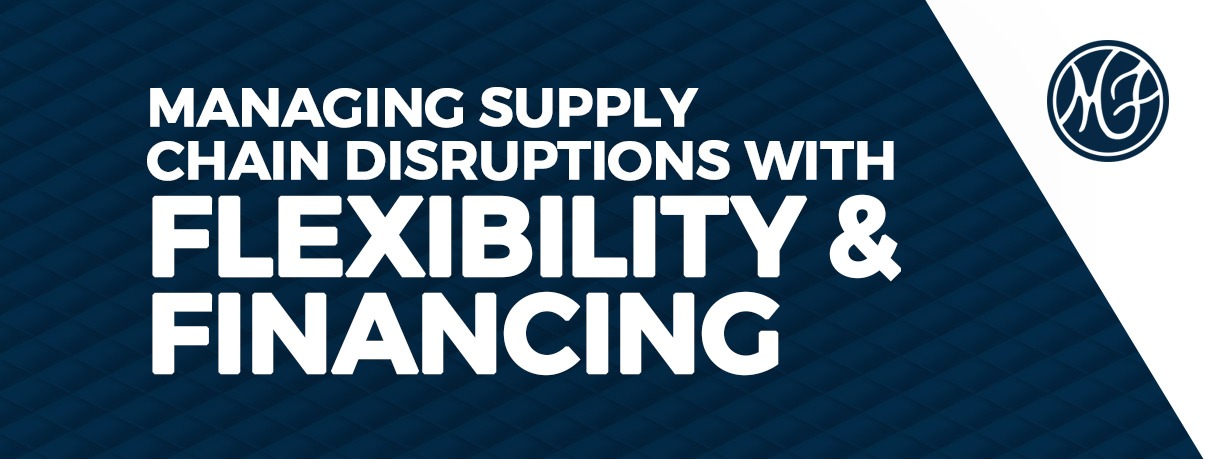With supply chain issues escalating in today’s global economy, the standard of “demand creates supply” is falling short.
As we start to emerge from the pandemic, demand is growing yet we are still waiting for supply – in many industries – to catch up. Many businesses are now aiming for revenue that is in line, or better, than where they were pre-pandemic but are facing challenges that are no fault of their own.
Businesses have hired more staff, increased production, and improved productivity but can’t get what they need to rev up quickly and to full capacity. Once-reliable suppliers are finding themselves in periodic lockdown or they are short staffed or they are having their own supply issues. This means a race to find solutions, which can require additional funding.
So what exactly is the supply chain? Very simply: The steps from beginning to end in the production through the sale of a product or service:
- Sourcing raw materials or parts
- Combining parts into a product
- Sales and order fulfillment
- Product delivery
- Support, customer service, returns


Obstacles can occur during any of the steps in the supply chain and may need flexible funding to solve in the short term.
Supply and component disruption is plaguing worldwide economies and is making it difficult to complete the manufacturing process. One only needs to look as far as the automobile industry to see how missing just one part (albeit, an important one) can affect getting the whole product to market.
Computer components from China, in scarce supply, can halt delivery of the whole vehicle. To keep a product flowing to market takes flexibility in sourcing. A company that has a trusted component source is now forced to look at different locations, pricing and pricing terms just to get the parts to complete the product. Businesses need to move fast to secure the part needed before a competitor swoops in.
Variable and flexible financing, such as factoring, is advantageous when costs go up, even if the scenario is temporary. A responsive funding program is critical.
“Financing can be the key to procurement of critical components or infrastructure, or even managing labor shortage issues,” said Milberg Factors CEO, Daniel Milberg. “Speed and flexibility are necessary along with a custom approach. Factoring is a great solution to accelerate cash flow for firms of all sizes – helping businesses mitigate supply chain issues, reinvest in their companies and grow their revenue.”
In today’s economy, many firms are impacted by supply and demand not following a normal economic structure. An unknown virus spreads throughout the world and, suddenly, there’s no toilet paper to purchase. A war in a different hemisphere starts and gas prices in the United States jump. A market consolidates to a few manufacturers followed by a factory shut down due to product contamination and then baby formula – a product everyone takes for granted – becomes scarce.
Now, more than ever, it’s apparent how truly interconnected the global economy is. The solution? Stay aware and flexible and identify new financing sources for your business so you can have funds quickly to make any changes needed to keep it all flowing.
To learn more about how factoring can help your business, contact Milberg Factors, Inc.
CONTACT
For more information about Milberg Factors, Inc., please contact Daniel R. Milberg at (212) 697-4200, David M. Reza at (818) 649-7587, or Ernest B. White at (336) 714-8852. Alternatively, you can email us at info@milbergfactors.com.








